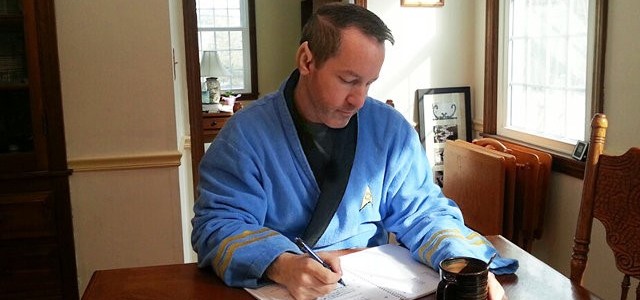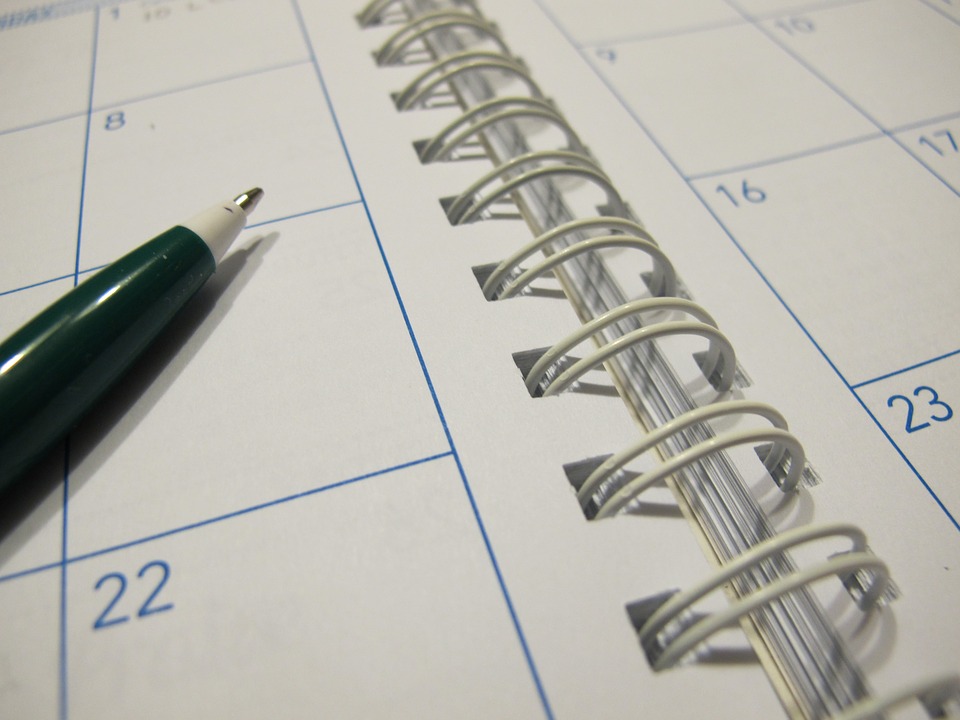Often you find yourself with a few spare minutes, but not enough to do anything meaningful with on your writing project—or so you thought.
Here are a few suggestions for how to fit a little more writing-related moments into your day or make better use of your spare moments to stay connected to your writing project. .
Check in with the world

Mindfulness helps to keep you de-stressed and balanced. When you find yourself with a few minutes, check in with your world. Notice, notice, notice. Notice 5 things you can see, 4 things you can hear, 3 things you can smell, 2 things you can taste or touch and 1 description of how you feel. Practicing this often fills your creative well and gives you more to draw from when you get back to writing
Think and plan

I’ve always believed that thinking about my story is part of the writing process. Asking myself character questions, mulling over the why of an action my character just took, working through a plot dilemma, thinking up new characters and plot events….
Read
Stephen King said “If you don’t read, you can’t write.” Fiction, non-fiction, poetry, general news: it is all grist for the mill. Check out the latest posts from your favourite writing blogs, magazines or organizations. Have a “read it later” file to save articles to that you want to read but don’t have time or head-space for right now. Or pick up your present print book and enjoy a new chapter. If you prefer audio, use extra time to download your preferred listening material to use on your daily walk, while cooking supper or just relaxing on the porch with a beer. It’s so much nicer to have it ready to go when you need it, than having to use your walking time (or writing time) to download.
Research
If I’m in the writing zone, and I don’t know a fact, I usually just type a note to myself like this: Conrad drove up in his XXX car (HOTTEST CAR OF 1989) and research it later. Think of how many items you could look up in ten minutes.
Back up your files

Many of us know the awful sinking feeling of lost work. The next time you’re waiting for your lunch to finish cooking, why not take a moment and back up all your files. Better yet, get yourself hooked up to an automated cloud-based backup. There are many out there. I use Dropbox and it’s saved my bacon many times. I also do periodic flash drive back ups of particular files for an extra layer of comfort. Remember, you don’t have to back up everything. Sync only what needs to be backed up. Make yourself a checklist of what’s important if you like.
Create a checklist
Checklists are great for taking advantage of the think-it-out-once, do-it-many-times-efficiently approach to routine tasks (see previous tip) But there are many kinds of checklists, and in a few minutes, you can create one to use later, or refine and update an existing one. You can have editing checklists, marketing checklists and creative checklists like a “Character” list including items like: main external goal, strengths, weaknesses, emotional wound, secrets, greatest fears, favourite colour, phobias etc. etc.
Transcribe

If your journals are anything like mine, there are all sorts of hastily written ideas and beginnings of poems or stories. Some writers even write longhand first for all their writing. Use a few spare minutes to get some of them typed up on your computer. You can save them individually as progress files, or collectively in an ideas file. Or physically tag them with Post-its for transcribing later.
Network on social media
Use your spare moments to follow a new writer or publisher. Engage with people of all kinds in the writing world. Find and share a promotional post from a writer you admire, or research a new market for your own work. Just beware the rabbit hole…..
Google Yourself
Run a Google search on your name and /or your book title. I have found articles I’ve written reprinted without permission and then secured reprint fees. I’ve enjoyed and filed away comments or reblogs I wasn’t aware of. Googling also gives me an idea of what comes up first in the SEO algorithms, so I can address that if necessary.
Update your bio

Handy in a computer file, every writer should have several bios (long 100-300 and short 30, 50 and 100-word) ready to go for all the different forms they write in: poetry; short stories, etc. And those bios should be up to date, but it’s amazing how quickly they become stale. Take this time to update a least one. Don’t forget online bios and headshots too.









 That means that October, affectionately known as “Preptober” is a month for getting all your ducks in a row, so you’re ready to actually write on November 1. Below are 10 ways to get ready to write, for NaNoWriMo or indeed for any new novel project.
That means that October, affectionately known as “Preptober” is a month for getting all your ducks in a row, so you’re ready to actually write on November 1. Below are 10 ways to get ready to write, for NaNoWriMo or indeed for any new novel project. Start with
Start with  Brainstorm story ideas. Outline potential plots. Ask yourself the simple but effective “What if?”, or use the base of all ancient myths and tales: the three act structure. If you know how you want your story to end, consider working backwards too. You might want to check out these tried and true variants of the three act structure too.
Brainstorm story ideas. Outline potential plots. Ask yourself the simple but effective “What if?”, or use the base of all ancient myths and tales: the three act structure. If you know how you want your story to end, consider working backwards too. You might want to check out these tried and true variants of the three act structure too. Define your story world: place and time. This could be as simple as “Russia pre 1917 revolution” or “Haliburton 1956”, or as complex as a new fantasy world or imagined planet. Or it might be a mix, say a fictitious town called Halbury based on Haliburton. Setting is important to ground your story and your readers. The more complex your setting, the more up-front “
Define your story world: place and time. This could be as simple as “Russia pre 1917 revolution” or “Haliburton 1956”, or as complex as a new fantasy world or imagined planet. Or it might be a mix, say a fictitious town called Halbury based on Haliburton. Setting is important to ground your story and your readers. The more complex your setting, the more up-front “









 In January, we traditionally take stock of our lives. For writers, that involves our creative lives, our writing lives. So far, we have already looked at
In January, we traditionally take stock of our lives. For writers, that involves our creative lives, our writing lives. So far, we have already looked at 



 the end of my studio time, right on the dot of 4:00, Joey the Dog comes in, sits down and stares hard at me. He’s letting me know in no uncertain terms, it’s time for his walk. It’s like having my own personal trainer.
the end of my studio time, right on the dot of 4:00, Joey the Dog comes in, sits down and stares hard at me. He’s letting me know in no uncertain terms, it’s time for his walk. It’s like having my own personal trainer. Aprille has fond childhood memories of outdoor adventures and time spent near the water. Today, she lives by the Bay of Fundy and her art reflects this love of the outdoors. She divides her time between painting, writing and teaching watercolour workshops.
Aprille has fond childhood memories of outdoor adventures and time spent near the water. Today, she lives by the Bay of Fundy and her art reflects this love of the outdoors. She divides her time between painting, writing and teaching watercolour workshops.
 What good is writing a wonderful poem, a brilliant short story, an entire novel manuscript, only to leave them forgotten in the digital drawer? A big part of being a writer is submitting your work. Agreed, not everything you write should see the light of day, but you know in your heart which pieces should be sent out into the world. It’s hard, yes. It takes courage to expose yourself to possible rejection, but you can only enjoy success if you take this important step. So, this fall, dig out those finished pieces, brush them off, pretty them up and decide where they can find a home. Then—the important bit—actually send them out!
What good is writing a wonderful poem, a brilliant short story, an entire novel manuscript, only to leave them forgotten in the digital drawer? A big part of being a writer is submitting your work. Agreed, not everything you write should see the light of day, but you know in your heart which pieces should be sent out into the world. It’s hard, yes. It takes courage to expose yourself to possible rejection, but you can only enjoy success if you take this important step. So, this fall, dig out those finished pieces, brush them off, pretty them up and decide where they can find a home. Then—the important bit—actually send them out! As we near the end of the year, reflect on what you achieved in your writing life. Was it more or less than you hoped for? If, like me, you didn’t get as much done as you planned, don’t beat yourself up about it. Take action instead.
As we near the end of the year, reflect on what you achieved in your writing life. Was it more or less than you hoped for? If, like me, you didn’t get as much done as you planned, don’t beat yourself up about it. Take action instead. I am terrible for starting projects and not finishing them. Are you? Is there even one project you could finish up and clean off your list before the end of the year? What about your writing space and daily habits? Are they “cleaned up” enough for you to feel creative, to have the time you need? Should you be throwing some habits out and replacing them with new?
I am terrible for starting projects and not finishing them. Are you? Is there even one project you could finish up and clean off your list before the end of the year? What about your writing space and daily habits? Are they “cleaned up” enough for you to feel creative, to have the time you need? Should you be throwing some habits out and replacing them with new? Now is the time to plan a winter schedule for your writing. What project/s do you want to tackle? Are there courses you need to sign up for in 2019? Conferences or retreats you want to attend next year that you must register for or save for now. A writing residency? A grant application? A submission schedule?
Now is the time to plan a winter schedule for your writing. What project/s do you want to tackle? Are there courses you need to sign up for in 2019? Conferences or retreats you want to attend next year that you must register for or save for now. A writing residency? A grant application? A submission schedule?


 I live in a tiny granny suite in the southwestern corner of BC, where space is at a premium. I can no longer keep physical archives, and I didn’t have enough empty file storage space on my existing computer. My archive still had to exist in a form that was
I live in a tiny granny suite in the southwestern corner of BC, where space is at a premium. I can no longer keep physical archives, and I didn’t have enough empty file storage space on my existing computer. My archive still had to exist in a form that was A quick poke through Staples and London Drugs websites unearthed the perfect solution: a hefty 2 terabyte Passport drive that plugs in to a USB port on my computer, and holds LOTS of files. All I needed was a sale and less than $100 to end my space challenge.
A quick poke through Staples and London Drugs websites unearthed the perfect solution: a hefty 2 terabyte Passport drive that plugs in to a USB port on my computer, and holds LOTS of files. All I needed was a sale and less than $100 to end my space challenge. Consistent folder names across the various storage, email, and social media platforms make retrieval much easier. Folder structures work best for me if they are named in the ways that I think, so I created my own. A couple of hours saw my folders labelled and matched on every platform.
Consistent folder names across the various storage, email, and social media platforms make retrieval much easier. Folder structures work best for me if they are named in the ways that I think, so I created my own. A couple of hours saw my folders labelled and matched on every platform. Emails (in individual folders OR across the entire inbox and all sub-folders) are searchable by subject line, content, keyword, date and sender and by some or all of the above in every mail program out there. You just have to learn how. Every email program is slightly different, and not everyone uses my beloved Outlook. For Gmail, I read the search
Emails (in individual folders OR across the entire inbox and all sub-folders) are searchable by subject line, content, keyword, date and sender and by some or all of the above in every mail program out there. You just have to learn how. Every email program is slightly different, and not everyone uses my beloved Outlook. For Gmail, I read the search  Leah Murray operates
Leah Murray operates 
 The writing critique group I belong to understands this perfectly. We meet every two weeks and at the end of each meeting we all set a writing goal for the next two weeks only. We each set our own goal depending on what we are working on at the time and what is happening in our lives.
The writing critique group I belong to understands this perfectly. We meet every two weeks and at the end of each meeting we all set a writing goal for the next two weeks only. We each set our own goal depending on what we are working on at the time and what is happening in our lives. When I’m trying to avoid that “frog”, I play solitaire, disappear into social media or sort the kitchen junk drawer or….. I’m sure you have equally pointless—and time consuming—avoidance tactics.
When I’m trying to avoid that “frog”, I play solitaire, disappear into social media or sort the kitchen junk drawer or….. I’m sure you have equally pointless—and time consuming—avoidance tactics. Now this may seem contradictory to the “eat the frog” principle, but getting through your to-do list and achieving your goals begins with making your bed.
Now this may seem contradictory to the “eat the frog” principle, but getting through your to-do list and achieving your goals begins with making your bed. So there you have it.
So there you have it. A writing retreat is a great way to focus on your writing projects and goals and registration for Writescape’s
A writing retreat is a great way to focus on your writing projects and goals and registration for Writescape’s 
 ok
ok  If writing is important to you, it needs to be built into your routine in the same way that you build in any other important activity in your life. If you need to schedule writing time like dental appointments, piano lessons, or hockey practice, do it. Think of writing as your “job” and block out set times like you would if you were going to work.
If writing is important to you, it needs to be built into your routine in the same way that you build in any other important activity in your life. If you need to schedule writing time like dental appointments, piano lessons, or hockey practice, do it. Think of writing as your “job” and block out set times like you would if you were going to work.



